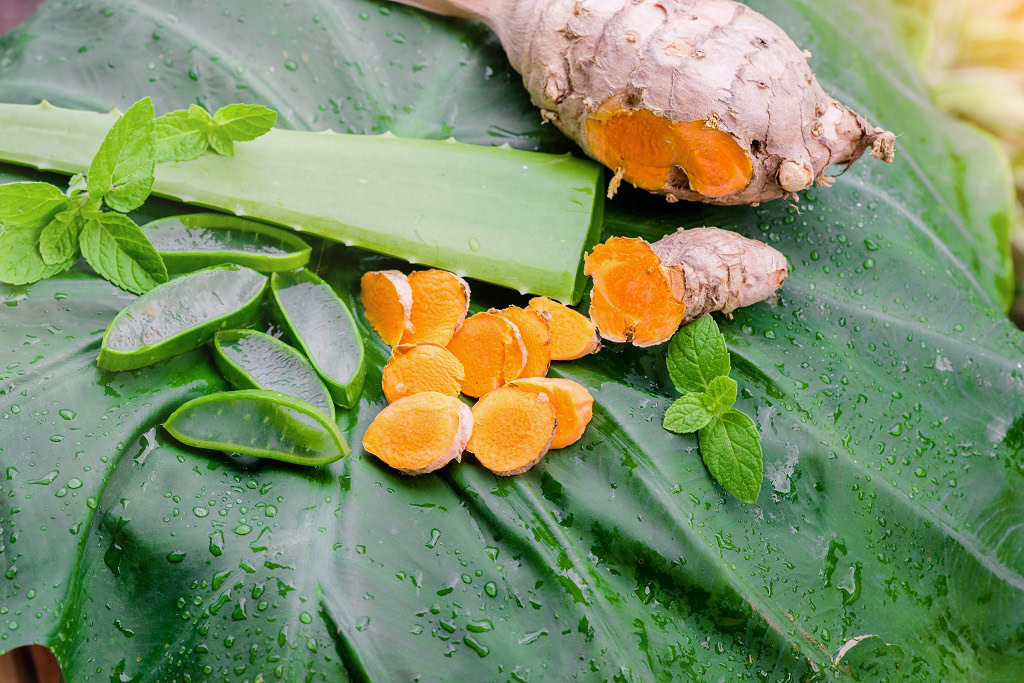Exploring The Health Benefits Of Curcumin

Introduction
Curcumin, the active ingredient in turmeric, has garnered significant attention for its potential health benefits. This polyphenol is renowned for its anti-inflammatory, antioxidant, and neuroprotective properties. Turmeric, a staple in Asian cuisine and traditional medicine, owes much of its therapeutic potential to curcumin. This article delves into the scientific evidence supporting the health benefits of curcumin, highlighting its role in managing various health conditions.
Anti-Inflammatory Properties
Inflammation is a natural response of the body to injury or infection, but chronic inflammation can lead to various diseases, including heart disease, arthritis, and neurodegenerative conditions. Curcumin has been extensively studied for its anti-inflammatory effects.
Mechanisms of Action
Curcumin inhibits several molecules known to play major roles in inflammation. For instance, it blocks the activity of nuclear factor-kappa B (NF-κB), a protein complex that controls the transcription of DNA, cytokine production, and cell survival. By inhibiting NF-κB, curcumin can reduce inflammation at the molecular level[1][2].
Clinical Evidence
A study published in Clinical Interventions in Aging found that curcumin supplementation significantly reduced markers of inflammation in patients with metabolic syndrome. The study concluded that curcumin could be a safe and effective anti-inflammatory agent for managing chronic conditions[1].
Antioxidant Properties
Oxidative stress, caused by an imbalance between free radicals and antioxidants in the body, is implicated in aging and various diseases. Curcumin is a potent antioxidant that can neutralize free radicals and boost the activity of the body’s own antioxidant enzymes.
Mechanisms of Action
Curcumin’s antioxidant properties are due to its chemical structure, which allows it to scavenge free radicals and upregulate antioxidant defenses such as superoxide dismutase (SOD) and catalase[1][2].
Clinical Evidence
Research published in the Journal of Clinical Psychopharmacology showed that curcumin supplementation improved antioxidant status in patients with major depressive disorder, suggesting that its benefits extend beyond physical health to mental well-being[3].
Benefits for Brain Health
Curcumin’s ability to cross the blood-brain barrier has sparked interest in its potential to improve brain health and protect against neurodegenerative diseases like Alzheimer’s.
Mechanisms of Action
Curcumin’s neuroprotective effects are attributed to its antioxidant and anti-inflammatory properties. It also boosts levels of brain-derived neurotrophic factor (BDNF), a protein that promotes the survival of neurons and is critical for learning and memory[1][2].
Clinical Evidence
A study in Frontiers in Aging Neuroscience found that curcumin supplementation improved memory and attention in older adults. The researchers suggested that curcumin could be a promising agent for preventing cognitive decline[3].
Benefits for Joint Health
Curcumin has also been studied for its potential benefits in managing joint health, particularly in conditions such as osteoarthritis and rheumatoid arthritis.
Mechanisms of Action
Curcumin’s anti-inflammatory properties help reduce joint inflammation and pain. It inhibits inflammatory cytokines and enzymes, such as cyclooxygenase-2 (COX-2), which are involved in the inflammatory process[2][4].
Clinical Evidence
A study published in Phytotherapy Research demonstrated that curcumin supplementation significantly reduced pain and improved physical function in patients with osteoarthritis. The study concluded that curcumin could be an effective and safe alternative to non-steroidal anti-inflammatory drugs (NSAIDs) for managing osteoarthritis symptoms[4].
Practical Considerations
While curcumin has numerous potential health benefits, its poor bioavailability is a significant challenge. To enhance absorption, it is often combined with piperine, a compound found in black pepper that increases curcumin’s bioavailability by 2000%[1][3].
Dosage and Supplementation
The effective dosage of curcumin varies, but studies typically use doses ranging from 500 to 2000 mg per day. It is advisable to consult with a healthcare provider before starting any new supplement regimen, especially for individuals with underlying health conditions or those taking medications[3][5].
Conclusion
Curcumin, the active compound in turmeric, offers a wide range of health benefits, from reducing inflammation and oxidative stress to improving brain and joint health. While more research is needed to fully understand its therapeutic potential and optimal dosing, current evidence supports the inclusion of curcumin as a valuable component of a healthy diet.
References
- Hewlings, S. J., & Kalman, D. S. (2017). Curcumin: A Review of Its’ Effects on Human Health. Journal of Nutrition. Retrieved from https://www.ncbi.nlm.nih.gov/pmc/articles/PMC5664031/
- National Center for Biotechnology Information. (2021). Anti-Inflammatory Effects of Curcumin in the Inflammatory Diseases. Journal of Inflammation Research. Retrieved from https://www.ncbi.nlm.nih.gov/pmc/articles/PMC8572027/
- Healthline. (2022). 10 Health Benefits of Turmeric and Curcumin. Retrieved from https://www.healthline.com/nutrition/top-10-evidence-based-health-benefits-of-turmeric
- WebMD. (2022). Health Benefits of Curcumin. Retrieved from https://www.webmd.com/diet/health-benefits-curcumin
- WebMD. (2023). Turmeric and Curcumin. Retrieved from https://www.webmd.com/diet/supplement-guide-turmeric
By understanding the science behind curcumin, individuals can make informed decisions about incorporating this powerful compound into their health and wellness routines.
Citations:
[1] https://www.ncbi.nlm.nih.gov/pmc/articles/PMC5664031/
[2] https://www.ncbi.nlm.nih.gov/pmc/articles/PMC8572027/
[3] https://www.healthline.com/nutrition/top-10-evidence-based-health-benefits-of-turmeric
[4] https://www.webmd.com/diet/health-benefits-curcumin
[5] https://www.webmd.com/diet/supplement-guide-turmeric
[6] https://www.sciencedirect.com/science/article/pii/S0753332221006703
[7] https://www.nature.com/articles/s41598-024-61662-7
[8] https://www.ncbi.nlm.nih.gov/pmc/articles/PMC3535097/
[9] https://www.theguardian.com/science/2022/may/22/does-turmerics-reputation-translate-into-real-health-benefits
